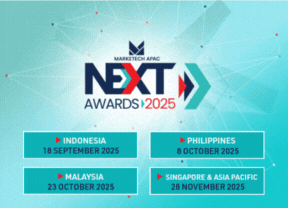Singapore – The majority of Singaporean marketers have now adopted artificial intelligence, with 78% of them having tested or fully implemented AI into their operations.
However, satisfaction with the ability to incorporate customer data sources stands at only 21%, ranking Singapore second lowest globally, following the Netherlands at 19%. This is according to a recent report by customer relationship management firm Salesforce.
Key findings of the study also include marketers embracing AI with an eye on trust, with 78% stating they have already experimented with or have fully implemented AI into their workflows.
Another finding also showed that marketers are strengthening their data foundations. In particular, an average of nine different tactics is being used to collect data. Data from customer service touchpoints is the most common.
Only 42%, on the other hand, have access to real-time data to execute a campaign, ranking the lowest globally. Around 57% also need the IT department’s help to do so.
Furthermore, marketers are now seeking unified analytics given that there is no shortage of data sources, making putting data to work a challenge, especially when it demands a holistic or long-term view of data. In fact, 49% are tracking customer lifetime value (CTV), while 84% say they have a clear view of marketing’s impact on revenue.
Apart from this, the report also revealed that marketers primary concern is improving marketing ROI in a highly competitive landscape. However, their biggest struggle is measuring results and engaging with customers in real time.
Deeper relationships emerge with account-based marketing (ABM), and loyalty programmes are also among these findings, with 60% saying loyalty data is fully integrated across all touchpoints. Meanwhile, only 35% say loyalty programme functionalities are accessible across all touchpoints.
Approximately 50% of B2B marketers also use ABM for customer acquisition, around half use it for upselling (50%) and cross-selling (53%).
Lastly, marketers are also shifting from generalised audience segmentations, such as location or age, towards more targeted identifiers, such as individual preferences or past interactions. More specifically, high performers fully personalise across an average of six channels, compared with underperformers who fully personalise across two.
Wendy Walker, vice president for marketing at Salesforce ASEAN, shared, “As marketers, we are used to the pressure of needing to do more with less whilst meeting the increasing expectations of consumers, especially around personalisation. And so it’s no wonder that we are leading the way with integrating AI. AI makes personalisation at scale a reality while also driving greater opportunity for brand consistency and storytelling at every touchpoint and fueling efficiency for our teams.
“However, as we embrace this technology, what becomes critical is the need for the data we work with to be unified across systems to give us a comprehensive view of customer engagements. Technology should empower creativity, allowing marketers to deliver meaningful and relevant content to their audiences; this is only possible with trusted data,” added Wendy.









